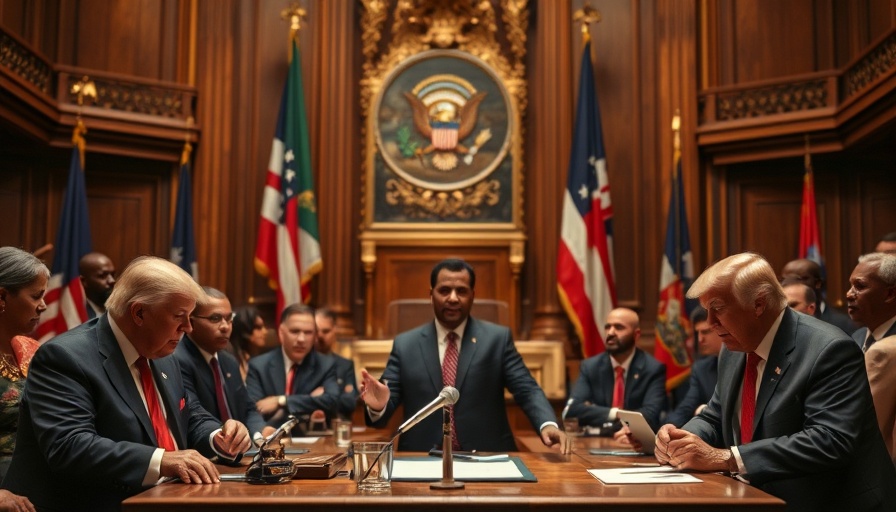
Chad's Presidential Term Limits: A Shift Towards Authoritarianism?
Chad has taken a significant step towards political consolidation as its national assembly has voted to revise the constitution, allowing the president to serve an unlimited number of terms. This decision comes amid global scrutiny over governance practices in Africa, raising concerns about the implications for democracy and stability in the region. The newly elected leader, Mahamat Idriss Deby, now reinforces his grip on power, following the controversial election that occurred under military rule.
The Implications of Unlimited Terms in Chad
By extending presidential terms from five years to seven and removing term limits altogether, the ruling elite in Chad is setting a precarious precedent. Observers note that this opens doors for President Deby to entrench his authority, signaling a shift towards a more authoritarian regime. Remadji Hoinathy from the Institute for Security Studies emphasizes that {"there are fewer and fewer dissenting voices,"} indicating a waning of opposition capabilities.
Regional Stability and International Concerns
The fallout from this constitutional change has far-reaching implications beyond Chad's borders. The evolving political landscape affects Central Africa's stability, especially given Chad's strategic position as a military ally in the region. The potential for unrest or civil disobedience raises alarms among international observers, prompting questions about how Western governments will react to such autocratic maneuvers.
Reactions from African Leaders and the International Community
The decision has sparked mixed responses from neighboring African countries and global diplomats. While some may view it as a move that could destabilize governance across West Africa, others may silently support it, prioritizing security over democratic ideals. As Chad’s transformational governance unfolds, it will be pivotal to monitor local reactions and international diplomatic engagements regarding political progress.
Conclusion: A Call for Vigilant Advocacy
The shift in Chad’s constitutional framework reflects a broader challenge facing many African nations—where geopolitical stability often supersedes democratic governance considerations. Engaging in advocacy for stronger democratic norms is essential for ensuring that the voices of Chad’s people are not silenced. Understanding these developments can empower stakeholders, including business leaders, policymakers, and academics, to navigate Africa’s complex political terrain effectively.
 Add Row
Add Row  Add
Add 


Write A Comment